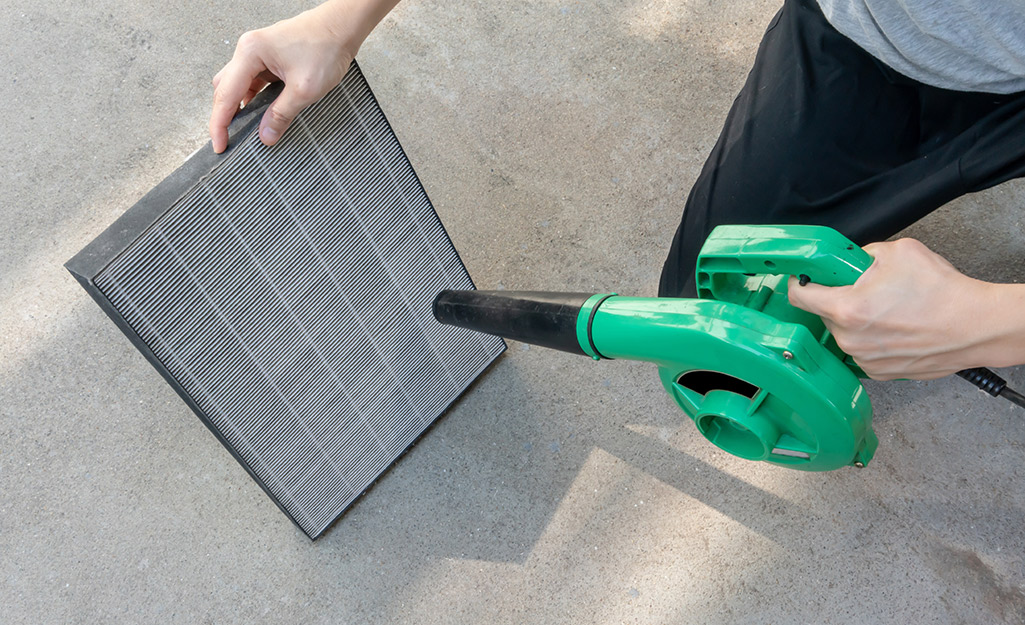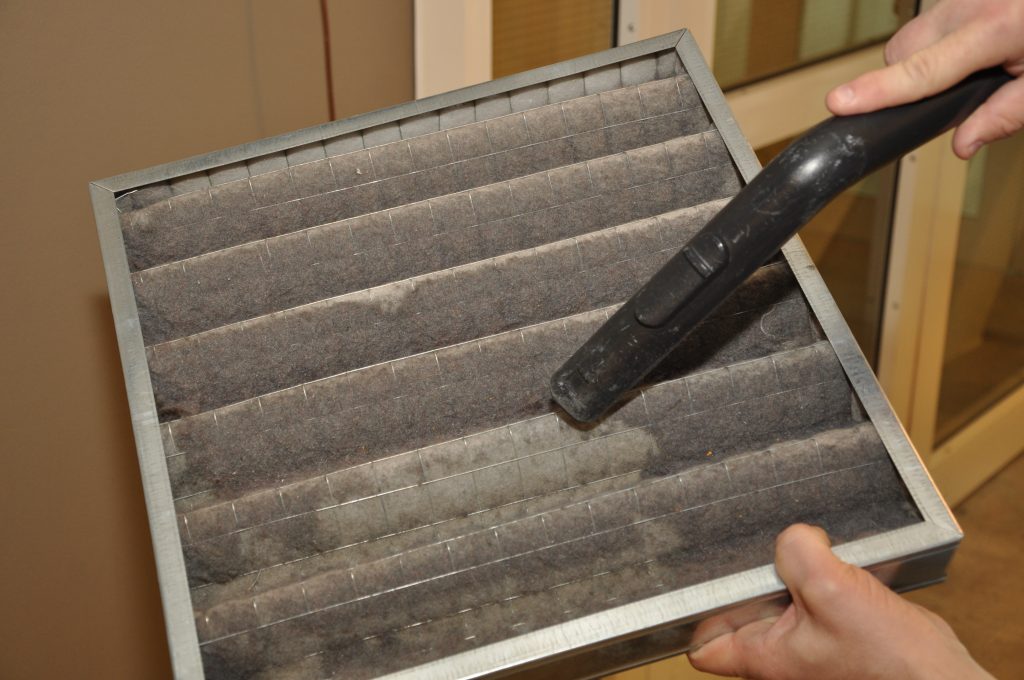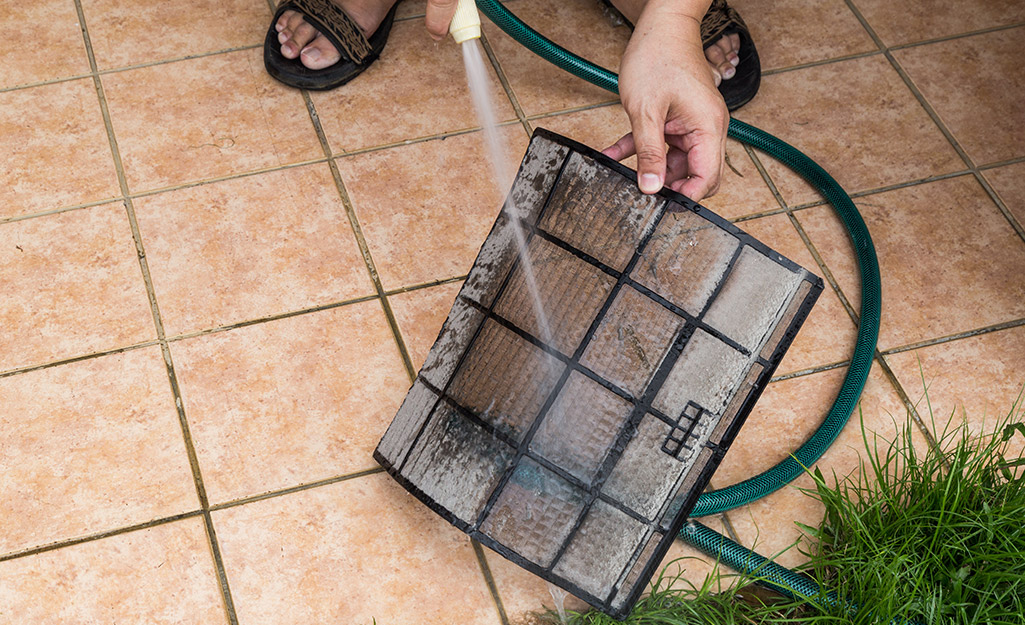How to Clean Air Conditioner Filter: Easy Refresh Guide
To clean an air conditioner filter, turn off the unit and remove the filter. Rinse it with water and let it dry.
Regular maintenance of your air conditioner is crucial for its efficiency. A clean filter ensures better air quality and energy savings. Dust and debris can clog the filter, making the unit work harder. This not only increases energy consumption but also shortens the lifespan of your appliance.
Cleaning the filter is a simple task that can be done monthly. It improves air circulation and reduces allergens in your home. Following these steps will help you maintain a comfortable living environment while keeping energy costs down. Proper care of your air conditioner can lead to a more sustainable and cost-effective operation.

Credit: www.homedepot.com
Introduction To Air Conditioner Maintenance
Clean filters help the air conditioner work better. Dirty filters block the airflow. This makes the system work harder. It also uses more energy. Clean filters keep the air clean. This is good for your health. It also helps the air conditioner last longer.
Regular cleaning saves you money. It reduces energy bills. It also prevents costly repairs. Clean filters improve air quality. This helps people with allergies. The air conditioner will run smoothly. It will also cool your home better.

Credit: americanhomewater.com
Identifying Your Ac Filter Type
Air conditioner filters come in two main types: disposable and reusable. Disposable filters are made of paper or fiberglass. They are designed for one-time use. Reusable filters are made of sturdier materials. They can be cleaned and reused multiple times. It’s important to know which type you have. This helps in proper maintenance.
The filter is usually behind the front grill of the air conditioner. It can also be inside the air handler unit. Some filters are located in the return air duct. Always check your user manual for the exact location. This ensures you find it easily.
When To Clean Your Ac Filter
Clean your AC filter every 1-2 months to maintain efficiency. Regular cleaning prevents dust buildup and improves air quality.
Signs Your Filter Needs Cleaning
If your home is dusty, your filter may be dirty. Weak airflow is another sign. A higher electricity bill can also mean a dirty filter. If you have allergies, a dirty filter makes them worse. Check your filter for dirt and dust. Clean it if it looks clogged.
Recommended Cleaning Frequency
Clean your AC filter every month during summer. If you have pets, clean it every two weeks. For mild climates, clean it every three months. Always check your AC manual for advice. Regular cleaning keeps your AC running well.
Preparing For The Cleaning Process
Unplugging your AC is the first step. This keeps you safe. Electricity can be dangerous. Make sure the unit is turned off. Double-check the plug is out of the socket. Safety should always come first.
You will need a few supplies. Gather a screwdriver, a vacuum cleaner, and a soft brush. A bucket of warm, soapy water is also useful. Don’t forget a clean cloth and a towel. These tools will help you clean effectively. They make the job easier and quicker.
Step-by-step Cleaning Guide
Turn off the air conditioner before removing the filter. Locate the filter panel and open it. Carefully slide out the filter to avoid damaging it. Check the filter for any visible dirt or debris.
Use a vacuum cleaner to remove loose dirt from the filter. Hold the filter firmly while vacuuming. Make sure to vacuum both sides for thorough cleaning. Avoid using high suction power to prevent damage.
Fill a basin with warm water and mild detergent. Submerge the filter and gently scrub it with a soft brush. Rinse the filter thoroughly with clean water. Ensure all soap is washed away.
Shake off excess water from the filter. Place the filter in a well-ventilated area to dry. Avoid direct sunlight to prevent damage. Make sure the filter is completely dry before reinstalling it.

Credit: www.homedepot.com
Reinstalling The Filter
Place the filter back in its slot. Ensure it fits snugly. The filter should not be loose. Check all edges to be sure. A loose filter can cause problems. It may let dirt into the system. This can damage the air conditioner.
Turn the air conditioner on. Feel the airflow from the vents. Make sure the air flows freely. Blockages can cause the unit to work harder. This uses more energy and can wear out the machine. Look for any dust or debris blocking the vents. Clear any blockages you find.
Maintaining Your Air Conditioner Post-cleaning
Check your air conditioner every month. Look for dirt on the filter. Clean it if it looks dirty. A clean filter helps your air conditioner work better. It can also save energy. Write a note on your calendar to remind you. Regular check-ups help your air conditioner last longer.
Keep your home clean. Dust and dirt can clog the filter. Vacuum often to reduce dust. Close windows on windy days. This keeps dirt out. Use air purifiers to trap dust. These steps help your filter stay clean longer. Replace the filter if it’s very dirty. Clean filters keep the air fresh.
Troubleshooting Common Ac Filter Issues
Persistent odors can be annoying. Dirty filters often cause these smells. Replace filters regularly to avoid this. Sometimes, mold or mildew grows in the filter. Clean or replace the filter immediately. Use a mild detergent to clean it. Dry it completely before reinstalling. A clean filter ensures fresh air.
Reduced efficiency means your AC works harder. Dirty filters block airflow. This causes your AC to use more energy. Check and clean the filter monthly. Replace if necessary. A clean filter helps your AC run smoothly. This saves energy and money. Always ensure the filter is dry before reinstalling. A well-maintained filter extends the life of your AC.
Conclusion
Keeping your air conditioner filter clean is crucial for optimal performance. Regular maintenance ensures better air quality and energy efficiency. Follow our step-by-step guide to clean your filter and extend your AC’s lifespan. Remember, a clean filter not only saves money but also promotes a healthier living environment.



